
Welcome To MacPhail Signature Smiles
Formerly known as Tenaglia Smiles, MacPhail Signature Smiles has served the dental needs of the people of Okemos, Lansing, and the Mid-Michigan area since 1993. Over the course of 30+ years, our practice developed a reputation in the region for our attention to detail while offering an upscale experience, unlike anything you’ve seen at an Okemos dentist’s office.
Read More
Our “spa day” amenities like neck pillows, blankets, one-minute manicures, paraffin hand dips, eye soothers, and relaxation through neurophysiology with NuCalm are what people notice first—but it’s our expertise and our results that keep people coming back. Our dental services handled by our Okemos dentist include Cosmetic procedures, Implants, Sleep Appliances, Orthodontics, Invisalign, Digital Bite Analysis, TMJ treatment, General Dentistry, and the industry’s most cutting-edge procedures designed to improve your smile. Dr. Christine Tenaglia wants you to learn how we can turn your smile into the beautiful, captivating look that you’ve always dreamed of having.
Dental Services
It All Begins with Your Smile. Let us make your dream smile a reality!
Porcelain Crowns
Dental porcelain has the ability to be molded and sculpted to look virtually the exact same as natural tooth enamel, while simultaneously providing significant resilience and strength.

Dental Implants
A dental implant is a small, titanium screw tooth that is actually placed into your jaw bone in order to support a dental crown or bridge.

Teeth Whitening
Dr. Tenaglia and our dental professionals have the knowledge and experience necessary to help you get the bright, white, and healthy smile you’ve always dreamed of.

Dental Bridges
The dental experts at Christine Tenaglia, DDS are highly skilled and experienced in implementing dental bridges in Okemos.

Invisalign
If you have misaligned teeth but you don’t want to deal with the hassle of having braces, our Invisalign services might be the perfect solution for you and your teeth.
![]()
Sleep Apnea
Depending upon the type and severity of the sleep apnea, there are various treatment options available to patients who suffer from this condition.


About Dr. MacPhail | Okemos Dentist
Dr. MacPhail was born and raised in the Greater Lansing area before moving to Wisconsin with her husband while he served in the United States Navy. While in Wisconsin she graduated from the University of Wisconsin-Parkside with a Bachelor of Biological Science Degree, and from Marquette University School of Dentistry with a Doctor of Dental Surgery Degree.
As a provider, her goal is to educate patients on their current dental condition and provide enough knowledge for patients to confidently make the best treatment decisions for themselves. She hopes to help patients understand the importance of establishing and maintaining good oral health as they transition throughout their life.
About Dr. Tenaglia | Okemos Dentist
In a world where most people have learned to dread their dentist, Dr. Tenaglia has earned her patients’ trust, allowing them to look forward to their check-ups while others avoid them! She took a simple idea and made it the cornerstone of our practice: Dentistry should be comfortable and enjoyable.
However, Dr. Tenaglia hasn’t just built a comfortable office. She’s built a practice that utilizes the latest procedures and technology in the field. She is constantly learning and re-educating herself about advanced treatments, traveling nationwide to provide the most efficient and effective methods of oral healthcare as an Okemos dentist.
Her patients love her, thanks to the spa-like amenities. But her patients trust her because she continues to deliver consistent and predictable world-class dentistry in an upbeat, newly remodeled office.
Why Choose Us
At MacPhail Signature Smiles, we go beyond traditional dentistry to provide comprehensive, patient-centered care in a welcoming and state-of-the-art environment. Here’s what sets us apart:
Whole-Health Approach
We evaluate more than just your teeth; we assess your bite, jaw alignment, and overall oral health to ensure long-term wellness.
Experienced & Highly Trained Team
With over 65 years of combined experience, our team of skilled female dental professionals stays at the forefront of modern dentistry through continuous advanced training.
Personalized, Compassionate Care
We take the time to build genuine relationships with our patients, offering customized treatment plans and even transportation assistance for elderly patients when needed.
Cutting-Edge Technology
Our office is equipped with the latest dental technology to provide accurate diagnostics, comfortable treatments, and exceptional results.
Comprehensive Services
From preventive care and cosmetic dentistry to complex bite issues, TMJ treatment, Invisalign, and sleep apnea solutions, we offer a full range of dental services under one roof.
Comfortable, Modern Atmosphere
Our relaxing and beautifully designed office ensures that your visit is comfortable and stress-free, making every appointment a positive experience.
Respect for Your Time
We value your schedule and strive to provide efficient, on-time appointments without sacrificing the quality of care you deserve.
Advanced Technology for Superior Dental Care
At MacPhail Signature Smiles, we invest in the latest dental technology to provide precise diagnostics, more comfortable treatments, and superior long-term results. Our cutting-edge tools allow us to deliver highly accurate, minimally invasive care tailored to your needs.

CBCT
CBCT (Cone Beam CT)
Provides 3D imaging for detailed assessments of bone structure, airways, and dental implants, ensuring precise treatment planning.
Learn MoreUltra-Low Frequency
Ultra-Low Frequency TENS
Relaxes jaw muscles to assist in neuromuscular dentistry, particularly for TMJ therapy and bite correction.
Learn MoreDigital Bite Analyzer
Digital Bite Analyzer
Measures the pressure distribution on your teeth, helping diagnose and correct bite imbalances for better function and comfort.
Learn MoreTeeth Cleanings
Ultrasonic Instrumentation for Teeth Cleanings
Uses high-frequency sound waves to gently and effectively remove plaque and tartar, ensuring a deep, comfortable clean.
Learn MoreK-7 Neuromuscular
K-7 Neuromuscular Technology (Miletronics)
Used for TMJ diagnosis and treatment, analyzing jaw function to improve bite alignment and alleviate pain.
Learn MoreDigital Scanning
Digital Scanning (iTero Scanner) & Teeth Scan
Eliminates messy impressions by creating highly accurate 3D digital models of your teeth for Invisalign, crowns, and more.
Learn MoreLaser Technology
Dialed Laser Technology
Enables minimally invasive treatments for soft tissue procedures, reducing discomfort and speeding up healing.
Learn More
Reviews from our happy patients
Creating vibrant smiles for healthy lifestyles!
FAQs
Do you accept appointments?
Yes, we do accept appointments at our dentist’s office. In fact, we highly recommend that you schedule an appointment with us in advance to ensure that you receive the best possible care.
Do I need to arrive early for my first appointment?
Yes, please arrive at least 10-15 minutes early to fill out any patient forms.
What forms of payment do you accept?
We accept checks, cash, credit cards, and most insurance plans. Contact our office so a member of our team can verify your insurance or visit our Payment Options page for more information!
How often should I visit the dentist?
It is important to schedule routine checkups and cleanings to keep your teeth and gums healthy. It is recommended by the ADA to visit the dentist at least once every six months. Contact us now to book your appointment and take the first step toward optimal oral health!
What services do you offer?
We are happy to offer a variety of services including:

Before and After
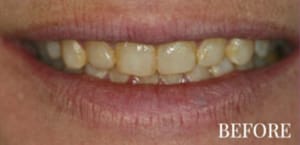
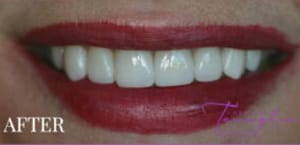
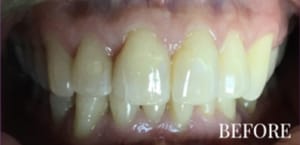
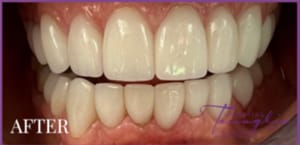
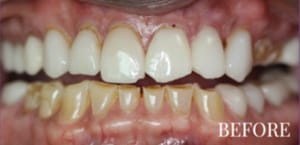
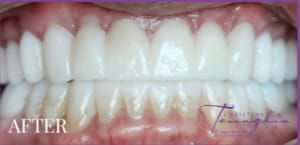
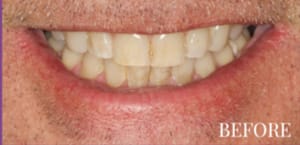
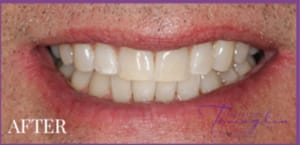
Contact & Location
Serving The Greater East Lansing Area
Location
Send Us a Message
"*" indicates required fields

An Award-Winning Dentistry
Dr. Christine Tenaglia is a trusted name for excellent general, cosmetic, and reconstructive dental care in Okemos. Having accomplished much throughout her 30 years in practice, her reputation among her colleagues in the dental community speaks for itself.
Dr. Tenaglia has been a recipient of many prestigious awards, including the People’s Choice Award for the “Best Dentist in Okemos,” the Don Bunka Outstanding Service Award, and the Rotary District 6360 Award. View her other accolades below.










